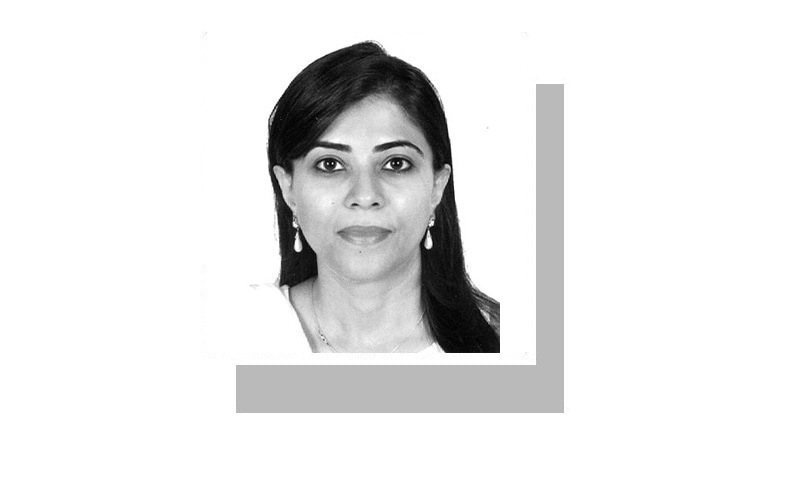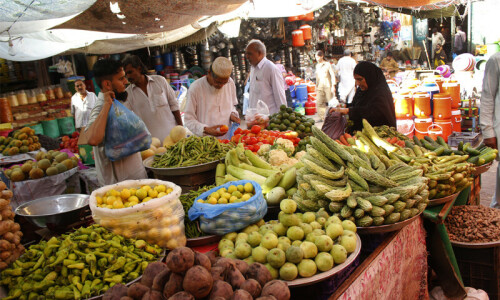IN the old days of print journalism, some of us were trained to keep the self out of what we wrote. But as all rules are meant to be broken here and there, here goes.
I did my ‘O’ Levels from a private school in Lahore in the late 1980s. Back then, only Aitchison College — a male-only preserve — offered ‘A’ Levels in the city. But by chance (or good luck) the winter I finished my exams, a few adventurous souls decided to open a co-ed place in dusty old Lahore to offer ‘A’ Levels to those on whom Aitchison’s doors were closed forever due to gender or grades.
My decision was made. ‘A’ Levels it was to be, despite having secured admission in Kinnaird College. Thanks to a supportive grandfather, I was able to but great was the consternation at my decision. In those days, no female worth her salt said no to Kinnaird College — it was finishing school and Radcliffe rolled into one. Whether one aimed at further education, a job or marriage, Kinnaird helped one reached one’s destination. It completed us the way Aitchison and/or Government College completed young men in Lahore.
One just wasn’t supposed to say no to Kinnaird. The disgrace and horror I was subjected to by extended family and friends lasted for the two years of ‘A’ Levels.
A mere 10 years later, most of my female cousins opted to do their ‘A’ Levels and then continue their education at either a private university in the country or abroad. No eyebrows were raised and no questions asked, for by then, public-sector colleges, Kinnaird included, were not the first choice.
This personal account is indicative of some of the changes in the education sector in Pakistan. By the time I was of school-going age, the elite had more or less disinvested from the public-sector education system. Private schools were coming up and the seeds of the biggest chains at present were laid back in the 1980s — probably as the impact of Zulfikar Ali Bhutto’s nationalisation was becoming evident. But the public-sector higher education system was still accepted.
However, by the 1990s, this too began to change and greener pastures — private colleges and going abroad — became the preferred choice. Now, for those who cannot afford the US or UK, obscure places or destinations such as Turkey or China are preferred. Gone are the days when ambitious parents would say that if their child didn’t get into a prestigious place, it would be better to save money and try again later. The disinvestment from higher public-sector education is complete.
Few have asked how the standards of education will improve for ordinary children.
Around the time my cousins were deciding, Musharraf took over and considerable money was poured into higher education, research and scholarships, and nationalised colleges were given autonomy. The policies had their critics and supporters. I do not know enough to pronounce judgement but the trend described earlier did not reverse. Public-sector institutions never regained their past prestige.
This is not just about perception. In the 20 or so years that I have spent in English print journalism, when hiring for an editing position, it was easier to not look at the degree and institute but whether or not the applicants had done their ‘O’ and ‘A’ levels. It’s not about language skills only; a colleague with a Master’s degree could not do percentages.
Now the PTI government promises to fix the education system. It began by working on a uniform education system, which would include madressahs. It has since come up with the Single National Curriculum.
First, we were told the aim was to ensure that every child in any part of the country would have the same learning objectives. This was followed by the decision to switch to the mother tongue in the early years — this is what experts (writing in English-language papers after having studied from Western institutes) say is the most effective. There was outrage from a few — because these few may have a mother tongue but their children are equally comfortable with English, which provides them an edge in school and life. (Or is it that the edge allows them and their children to be comfortable with English even before school begins?) Little was heard from those who go to public-sector schools because they are used to random, abrupt decisions affecting their children’s ‘education’. And little is taught to them, as they move from class to class.
There was also considerable outrage over the curriculum for Islamic studies because of what it may mean for students of a few private schools.
But in all this debate — important as it may be and quite above the understanding of a subeditor — few have asked and few have explained how the standards of education will improve for the ordinary children who have no choice but to go to public-sector schools or the cheaper private-sector schools which flourish because they do a little better than what the state offers.
If I may venture a guess, the PTI government is obsessing with curriculum because it’s easier to tinker with it than fix the education standards.
And its latest decision, in this regard, is to insist that only government approved textbooks be used by all and sundry (Ayesha Razzaque did a good article on this in The News recently). Anything extra will have to be approved by the government at a cost — who will do this and how is unclear.
People are upset — the few, who can still afford to get a good education. As a bureaucrat at the education ministry pointed out, the 40,000 or so sitting for ‘O’ and ‘A’ Levels in Pakistan are kicking up a fuss.
Eventually, they will find a way out also, as we all did when the standards at public-sector schools slipped and then at the colleges. I am sure of that. But for the rest, whatever outcome these decisions may bring, no one seems to think it will bring any improvement. A good public-sector education is not even a dream we aspire to anymore.
The writer is a journalist.
Published in Dawn, February 2nd, 2021












































